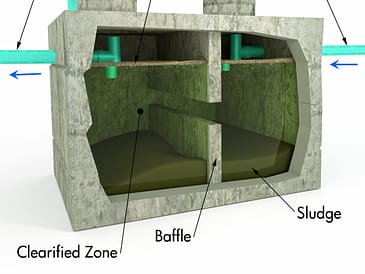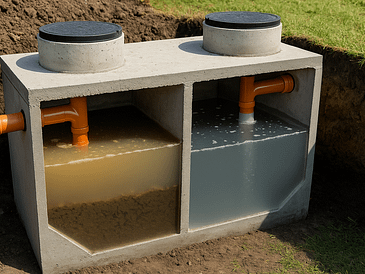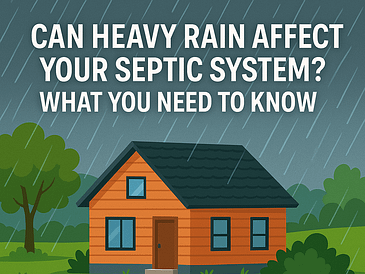
When a plumbing vent becomes blocked, it can lead to several issues. These include high pressures, sewer gas and backup of waste materials.
If you hear any of these warning signs, be sure to call a qualified plumber right away! Gurgling noises and slow drains are two common indications that your plumbing vent may be clogged.
Gurgling Noises
Gurgling noises in your plumbing are indicative of a plumbing vent problem that should be addressed right away. Ignoring this issue could lead to serious consequences like backups and clogged drains, so it’s essential to identify and resolve the source of these sounds immediately.
Gurgling sounds are caused by air trapped within your plumbing pipes, often after using a sink or toilet. When this occurs, it could be due to a blocked P-trap or vent.
A P-trap is a U-shaped pipe under your sink that contains water to block sewage gas and odors from entering your home. When the P-trap becomes clogged, air can build up within the drainpipe and force its way out in bubbles. As these bubbles exit through the traps, they may cause an audible gurgling sound as they exit through the pipe.
Another common cause of gurgling sound is a clogged vent stack. This could be due to various reasons such as tree roots blocking the pipe or debris blowing onto the roof and jamming up the vent.
If you are hearing a strange, gurgling sound that has never existed before, it’s time to identify its cause. If the noise persists, contact an experienced plumber so they can investigate what caused it and make any necessary repairs.
It’s wise to have a plumber inspect the vent system in your house, since this is an integral component of plumbing and should be professionally maintained. A poorly-maintained vent system can lead to numerous issues, including an unpleasant sewer smell.
Sewer gas can be an unpleasant odor, especially when you have to flush your toilet. A strong sewage smell may indicate that your vents are clogged; if this occurs, contact a plumber right away for assistance.
Another common sign of a clogged vent is slow drains. This could be caused by an obstruction or blocked drain pipe, so it’s essential to have your pipes inspected regularly. If any of these symptoms apply to you, call a plumber to inspect your pipes and vents to identify what’s wrong.
Foul Smells
If your plumbing vent is blocked, you may experience foul odours coming from your drains or toilets. This is due to sewer gases rising up through a damaged or clogged drain line and becoming trapped inside your home; they pose a major health hazard and have serious long-term consequences.
Foul odors can also be caused by other common plumbing issues like a clogged toilet or leaky pipes. If you detect an unpleasant stench in your home, contact a plumber right away so they can resolve the problem and eliminate it from your life.
Clogged plumbing vents prevent air from passing through pipes to maintain a proper vacuum, which in turn leads to slow or no movement of water through the vent. When this occurs, plumbing work will become much more challenging and eventually cease altogether.
Water can seep into sinks, bathtubs and other fixtures in your home, leading to the buildup of bacteria and unpleasant odors.
As the water exits your vents, you may hear gurgling and bubbling noises. This is because air has to spend extra time moving into the vents to replace the vacuum created by the water.
Listen closely for these sounds to identify when your drains are blocked. It should be easy to tell which pipes connect to which other drains, so you can identify where the obstruction is occurring.
When this occurs, it’s essential to get your drains checked by a professional to identify what else may be causing the blockage. Otherwise, you could end up with an expensive clog or worse yet, sewer gas seeping into your home and making you sick.
Another indication of a blocked vent is when waste doesn’t flush away with each flush or the toilet tank doesn’t refill. A blocked plumbing vent reduces air pressure that regulates waste and water flow through the system, so you’ll have to flush more frequently in order to get everything out.
Clogged plumbing vents can lead to other issues as well, so be on the lookout for any of the symptoms listed above that indicate an underlying issue. They’ll let you determine if you need professional help with fixing it yourself or if your drains are working fine on their own.
Sewage Smells
Sewage smells caused by clogged plumbing vents can be indicative of a larger issue. They could be indicative of a broken toilet bowl or loose bolts and joints in the drain line, allowing sewer gases to seep into your home.
One of the easiest ways to diagnose a clogged plumbing vent is by looking at how it affects other pipes in your house. If sinks or tubs drain slowly, this could also be indicative of an obstruction. If water doesn’t drain at all, contact a plumber for assistance.
If you detect a foul smell in your house, it is critical to get the vent pipe fixed promptly. Doing so will keep sewer gas at bay and stop it from escaping into your home and creating an unpleasant odor.
Sewage gas, composed of methane, hydrogen sulfide and ammonia, can cause a range of health issues when inhaled. It may irritate eyes and throat as well as cause dizziness or nausea if inhaled at high concentrations. At higher levels however, you could even sustain permanent lung damage.
Fortunately, most of these issues can be quickly and easily fixed by an experienced plumbing professional. In many cases, it will just require clearing away any leaves or other debris that has built up inside the vent pipe over time.
Another way to determine if the issue is due to a blocked vent is to inspect your roof for any obstructions blocking the pipe. If you spot any, this could be an indication that your vent pipe has become blocked and needs replacing.
You can also try cleaning out your vent pipe using a hose nozzle. This method works best if there are lots of dirt or twigs inside. Alternatively, use a pole to poke dirt into the pipe and then flush it away with water.
Clogged vents can often be fixed without professional assistance, but if the issue is more serious, a plumber may be necessary to eliminate odors and seal pipes. Bluefrog Plumbing + Drain + HVAC of San Antonio has experienced plumbers on staff that promise an extensive job that leaves your home fresh and free from unpleasant odours.
Slow Drains
Slow drains can be frustrating, but they could also be indicative of an underlying issue. If your pipes aren’t flowing smoothly, it’s essential to take them seriously and contact a plumber as soon as possible to resolve the problem.
When your sink, shower, or toilet won’t drain properly, it’s likely due to something blocking the pipe. This could include food debris, hair, kitchen utensils or other objects that shouldn’t go down the sink.
However, a slow drain could also be caused by a clogged vent pipe in your plumbing line. Vent pipes allow air into waste drainage pipes to help regulate pressure of water moving through them.
In addition to making your drains run slowly, a clogged plumbing vent may cause other symptoms as well. These could include gurgling sounds, foul smells or other indications that your pipes are in trouble.
When pouring water down a sink, shower or toilet, it’s common for it to make a gurgling sound as the liquid passes through the drain. This sound could indicate that sewer gas is being forced up the pipe and there’s an obstruction in your system.
To determine if your drain is blocked, contact an experienced plumber. They can accurately diagnose the problem and suggest solutions that will quickly address it.
Another way to identify a clogged drain is by inspecting the vents in your roof. These are often located near the ceiling and can usually be reached with a screwdriver or other long tool.
Vents allow air into your waste drainage pipes, which is essential for them to work efficiently and effectively. When these vents become clogged, it can cause mysterious problems in your plumbing system as the pressure of waste water may fluctuate due to a blockage.
Other plumbing problems, such as backed up pipes and damage to your walls and floors, may arise as a result. To avoid these issues, be sure to keep your drain vents clear of debris and obstructions.



